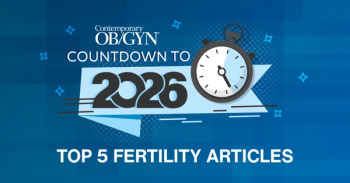
Are There Factors Predicting the Success of Sperm Recovery During Mesa-Tese Procedures?
The First World Congress On: Controversies in Obstetrics, Gynecology & InfertilityPrague, Czech Republic - 1999
Available for download in Word Document format
Objective
A prediction of a probability of successful TESE can prevent an unnecessary ovarian stimulation. The aim of this study was to evaluate possible predictors of the outcome of TESE.
Methods
A retrospective study of the group of 143 men with dg. azoospermia, 97 men suffered from testicular azoospermia. In this subgroup we analyzed following parameters: testicular volume, serum FSH concentration, histological classification and quantitative evaluation using the image analysis.
Results
The elongated spermatids were found in 48.5% of the histological samples. Spermatozoa were obtained per TESE in 51.5% men. In no patient with the true histological diagnosis of Sertoli cell only syndrome any sperm was found.
Conclusions
Neither serum FSH concentrations nor the testicular volume correlate with the outcome of TESE. The most accurate predictor seems to be the testicular biopsy however at least 100 seminiferous tubules must be examined for the reliable evaluation. The retrieval of the elongated spermatids in the biopsy sample indicates the positive result of TESE in at least 84% patients, while in patients who have no germinal cells in representative number of tubules we can practically exclude the obtaining of the sperm by TESE. We demonstrated earlier the same oocyte fertilization rate whether using fresh or frozen spermatozoa. With respect to these findings our strategy was changed - we now take the material for the biopsy and for the cryopreservation for subsequent TESE simultaneously before the launch of the ovarian stimulation. We initiate the stimulation as lately as we have the positive peroperative finding or the conclusion of the histological examination.
Newsletter
Get the latest clinical updates, case studies, and expert commentary in obstetric and gynecologic care. Sign up now to stay informed.









